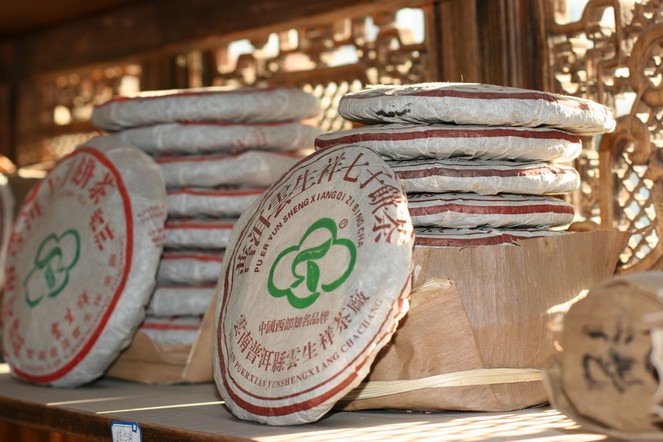At this time of year, I particularly enjoy drinking Pu Erh after a meal. Firstly, it is said in China that this tea “dissolves fats” and helps prevent cholesterol. Secondly, I like its aroma of wet earth, rotting wood and damp straw; its smell of cowsheds, mushrooms and oak moss; its aroma of cellars, dry wood, liquorice, manes, wax and flint; its vegetal, fruity smell.
From one Pu Erh to another, the variety of olfactory notes is wide, another reason to try this fascinating group of teas, the only ones that undergo real fermentation. It is available loose-leaf or in a “cake”. It can be “raw” or “cooked”, depending on whether fermentation is done in the traditional manner or accelerated. It can also improve with age, like good wines.





